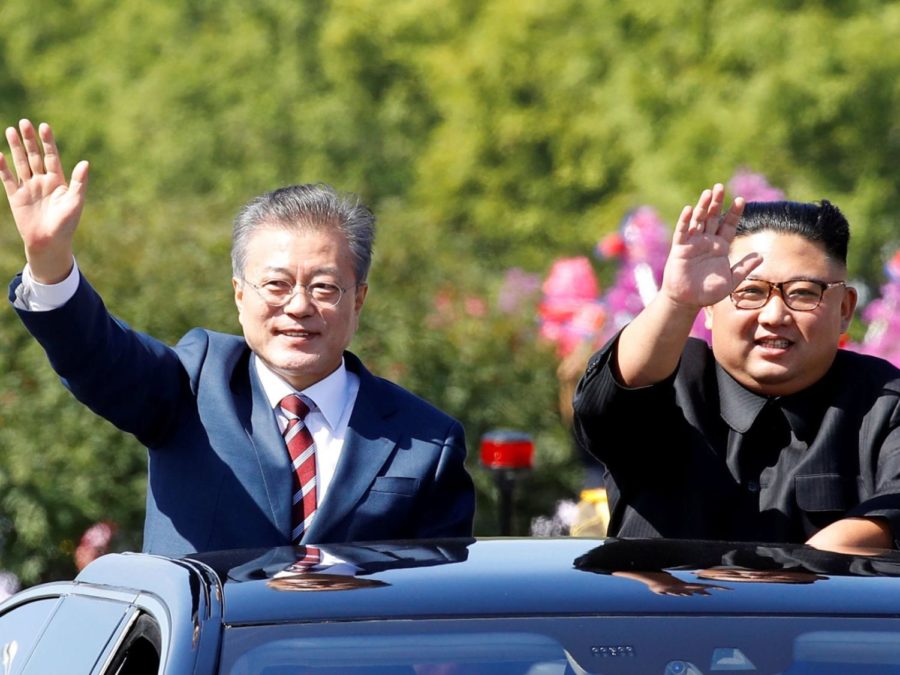North Korea and South Korea: What is Their Fate?
It is difficult to imagine North Korea and South Korea were once a unified nation. In 1950, the Korean war began as the result of the Soviet-controlled northern part of Korea crossing the 38th parallel to the US-controlled southern part of the peninsula. By the end of the war in 1953, conflict had cost the lives of millions of people and decimated hundreds of towns, and neutral countries such as China and the US came to decide Korea’s fate. The result was the split between the northern half and southern half of Korea into the two sovereign states we know today.
Although the historical Korean War physically ended in 1953 with an armistice, many argue the Korean War did not end that year. Because there was no treaty signed, tensions and aggression continued to develop between the two countries. North Korea often threatened to bomb South Korea, and even the US, as they developed nuclear weapons and invested significant money into government programs to enhance their arsenal. The 4400 yards called the Demilitarized Zone separate the two Koreas, but as of April 2018, South Korean president Moon Jae-In and North Korean president Kim Jong-Un vowed their countries would never go to war again. With a handshake, then a warm gesture from the South Korean president, Kim took a step into South Korea, becoming the first North Korean leader to take a step into South Korea since the Korean War. Soon after, Moon followed by taking a step alongside Kim into North Korea. At the peace-house Kim wrote, “A new history starts now. An age of peace, from the starting point of history.” North Korea agreed to denuclearize, setting a path and future of peace for the relationship between the two Koreas.
Although this meeting gave some peace of mind to Koreans, as well as to Americans who had recently felt threatened by North Korea, Kim’s commitment to denuclearization cannot be confirmed. Allegedly, North Korea is still in the process of developing nuclear weapons. As of now, the two Koreas seem to be more at ease on the surface as there have been few threats from either side. But, if this peaceful path and future were to advance, there could be a possibility of the two Koreas uniting under one flag once again.
Although unification would bring long awaited peace to the region, it is not entirely good for the people and the economy. North Koreans and South Koreans are drastically different. North Koreans live in a society where they are highly limited to freedom and advanced technologies, while South Koreans live in a fairly free society where new technologies are a source of profit for the economy. As of now, it seems as though the Koreas are working to maintain the peace they have established, but alleged production of nuclear weapons in North Korea makes unification more difficult. Unification is a remarkable idea on paper, but it comes with many complexities and the possibility of the decline of the economy. Is it worth it to finally unite the two Koreas through peace, or is it more important to maintain the state of the two countries that are drastically different in their politics, economy, and culture?
Sources:












Shirley Li • Jan 18, 2019 at 9:39 am
I think I support North Korea and South Korea to unify again. Although this action could affect the improvement of both countries’ economic and social growth, I believe if both countries maintain the similarities and include the differences. The struggle of the decline would be solved. In conclusion, I hope North Korea and South Korea can work together and both created a peaceful future.
Yidthrog Phuntshok Norzin • Jan 10, 2019 at 9:07 pm
The reunification of South Korea and North Korea might seem good for historical and sentimental reasons but this might end up being one of the most disastrous events in the history of the world. The reunification would involve plenty of sacrifices from both nations in terms of culture, economy, and politics. The South Koreans would have to give up certain rights and habits to get along with the North Koreans and the North Koreans would have to do certain things out of their comfort zones which is a pretty big deal for the North Koreans. The political parties and the leaders of the nations might end up having a great deal of tension because of the differences in their views, ideas, and experiences. But on the other hand, the reunion of the two nations might not be bad at all because this reunion could bring together other bigger nations like China and the U.S. and get rid of many conflicts between nations. There is a possibility of great friendship and trade relations between China, Russia and the United States of America. The addition of the revenue of the two nations could be used for the further advancement of the nations, the creation of opportunities and the introduction of public facilities. This reunion could create job opportunities and improve the living standards overall. The two nations unified as one, Korea could be a really powerful and influential country with a strong military base and a very stable central government. The list of possibilities are always open but at the end of the day, no one can really say it would be nice to have North Korea and South Korea united as one.